I get a mask as a string that I retrieve using strtol and strtok and that I want to save in an unsigned int x, trail with zeros, and & it with an IP represented also as unsigned int in order to keep the MSBs only (At the end I'm going to compare that IP with another).
My idea was to set all the bits of x, and then turn off all bits placed after the mask size:
#define IPV4_LENGTH 32
//subent is "123.34.45.66/31"
curr_IP->address = malloc(sizeof (struct in_addr));
token = strtok(subnet, "/");
inet_aton(token, curr_IP->address);
long mask = strtol(strtok(NULL, "/"), NULL, 10);
curr_IP->x = -1;
for(long i=mask; i<=IPV4_LENGTH; i++){
curr_IP->x &= ~(1U << i);
}
Example: if mask = 31, I want to end with 11111111111111111111111111111110 represented in unsigned int -> FFFFFFFE in HEX
P.S mask can't be 0
UPDATE:
Memory view after curr_IP->x = -1;
We can see it indeed sets up all the bits
Memory view after curr_IP->x &= ~(1U << i); when i = 31
expected fffffffe

